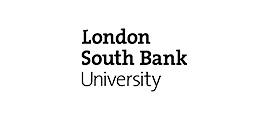Sales and Marketing at a Glance
- Start date: Anytime
- Location: Online
- Study pace: Flexible (no deadlines or timeframes)
- Qualifications: Level 4 IAB diploma (120 credits) , Level 5 Qualifi diploma (120 credits) or Level 4 & 5 diploma (240 credits)
- Assessment: Online written assignments
- Includes: 1-2-1 tutor support, all course materials and more
- Ofqual Link: Level 4 Diploma in Sales and Marketing – 610/3126/4
- Ofqual Link: Level 5 Diploma in Business Management – 601/6049/4
Dream of driving sales growth and crafting compelling marketing strategies? From sales techniques and customer relationship management to digital marketing and brand development – our Sales and Marketing Course can set you on the path to success.
Accredited and recognised by leading industry organisations, our online Sales and Marketing course covers everything from sales strategy, market research, and consumer behaviour to digital marketing, branding, and public relations.
With personalised one-on-one expert tutoring support, our programme will deepen your understanding of the sales and marketing landscape. As the industry evolves, studying Sales and Marketing will equip you with the skills needed for a diverse range of high-level careers in a competitive market.
The undergraduate Level 4 Diploma in Sales and Marketing and Level 5 Diploma in Business Management are a 240 credit course designed to fast track students to the final year of an associated undergraduate degree in Sales and Marketing, which can either be completed at a UK University on campus or via distance learning.
The Level 4 modules and assignments of this course are equivalent to the first year of a University degree, and the Level 5 modules and assignments are equivalent to the second year of a University degree.
How it works
Students on our Sales and Marketing course can complete a Level 4 (120 credits), Level 5 (120 credits) or a combined Level 4 & 5 (240 credits) diploma, designed to provide students with the skills needed to succeed in the Marketing industry.
The course is completed online and you can start at any time, it’s completely flexible. Each module (Level 4 & Level 5) consists of 40 hours of guided online learning, with an additional 30-50 hours worth of optional materials that include recommended exercises, readings, digital resources and self-test tasks.
To complete the course you’ll submit 10 online assignments at Level 4 and 6 online assignments at Level 5. Assignments are approximately 2,000-3,000 words each. Once you’ve passed your course, you’ll be awarded with an IAB and Qualifi diploma and you’ll be able to top up your qualification to a bachelor’s degree at a range of UK universities.
During this Sales and Marketing course you’ll have access to 1-2-1 tutor support and webinars, social learning forums and additional materials to complete your diploma with ease. You can find out more about the support you’ll have available on our Student Resources page. You can also read about the academic credentials we meet and associations we’re part of to make sure you have the best learning experience.
Course Modules
Level 4 Module Listing
The business environment
What comes to mind when you think of the word ‘environment’? You probably think of surroundings, and the conditions and influences of the surroundings. Similarly, the business environment refers to an organization’s surroundings – its external surroundings, as well as its internal surroundings.
Customers and customer service
This module starts by looking at customers and how they make decisions about their purchases. What factors do they think about when buying a chocolate bar, vegetables, a book, a refrigerator or a house? How do businesses decide which company to use when buying a new computer system? Before you can start to market to people you must have some clear ideas about how they think, and understand the attributes and benefits that they are looking for.
Marketing mix
In marketing, a company is faced with two kinds of variables. First, there are the variables associated with the external environment; the environment surrounding the organization, made up of the macro-environment (the broad environment consisting of political, economic, socio-cultural, technological dimensions) and the micro-environment (the competitive structure of the industry in which the company operates). A company has no direct control of these external variables. The second set of variables contains operational variables; factors over which a company has full control.
Marketing and sales planning
Marketing and sales are fundamental to business, whatever the sector. In the private sector, it is accepted that marketing and sales planning is essential to achieve profitability and market success. In the public sector and in the charitable sector, the focus is not on profit making but on customer(or more broadly, stakeholder) satisfaction. Marketing is increasingly playing a key role in the non-profit sector to build awareness of issues and promote causes, taking the perspective of not just customers (recipients) but also donors.
IT in business
There is clear evidence that Information Technology provides competitive advantage, whatever the business sphere an organisation operates it.
To gain advantage, managers must know how IT can be used in internal and external processes to deliver better value to the end customer.
Managing and using marketing
This module will provide you with a comprehensive introduction to marketing. It is intended to be relevant to the management and operation of organisations in many different areas of the economy, including those which do not operate for profit.
Customers and their needs
The aim of modern marketing is to identify and then satisfy each customer’s needs and wants. This is often done by building relationships with customers and using these relationships to create a two-way communication between the two parties. The customer communicates his or her preferences, and the business communicates information about products that will satisfy the customer’s needs and wishes.
E-marketing communications
The success of the World Wide Web and the proliferation of the Internet and associated technologies have revolutionised the way organisations conduct their business. The most apparent change has been the support provided through technology to a number of traditional operations, such as sales, communications, customer services and marketing.
High performance sales
An organisation’s success depends on a number of factors including its operations, its marketing strategy, its human resource management and its sales. One of the most common criteria used for assessing the organisation’s success is sales growth. This is an indication that the organisation manages to maintain its existing customers but also attract interest followed by sales from new markets.
Marketing strategy
How then do organizations develop strategies in a complex marketing environment? How do they assess opportunities and threats? Which markets and segments do they target and why? Which market positions play to an organization’s strengths? What product portfolio should be maintained for long-term value? These are some of the questions we shall address.
Level 5 module listing
The entrepreneurial manager
What is an entrepreneur? Examine the skills and qualities of entrepreneurship.
Organisation structures
Why are organisations structured in the way they are? What determines the optimum structure and how does it differ between organisations? In this module, learners will look at the numerous models and theories that make up organisational structure.
Practical accounting analysis
Learners will complete exercises in accounts throughout this module to understand what they are telling us and the actions that analysis can precipitate.
Business planning and goal setting
What is the business trying to achieve? What will it do? How will it do it? This module focuses on the creation of clear goals and clear plans to achieve a clear objective.
Politics and business
Impact of politics on business and how it may help or hinder business. This module will educate learners on economic impact, exports and government support.
Business law
Explore the statutory responsibilities of managers as learners look into the legalities of business and business executives.
Managing in today’s world
Business in the modern world. This module focuses on governance and equality as a means to do right in business.
Performance management
Understanding how your people and your business can continually improve together, learners will review reward structures, CPD, training and development to ensure high performance in business.
Marketing and sales planning
Learners will analyse how markets, customers, competitors and products can come together in a cohesive plan.
Quantitative skills
On successful completion of this module, learners will have knowledge of numeric exercises and will understand their use within the context of the business.
Assignment Unit titles:
The assignment unit titles for the level 4 course are:
- Business environment
- Customer service
- Customers and their needs
- E-marketing communications
- Information technology in business
- Managing marketing
- Marketing and sales function
- Marketing mix
- Marketing strategy
- Selling
More information about the Level 4 units can be found here: https://www.iab.org.uk/wp-content/uploads/2023/09/SM-Qual-spec-v3.pdf
The assignment unit titles for the level 5 course are:
- Business development
- Business models and growing organisations
- Customer management
- Responding to the changing business environment
- Risk management and organisations.
- Effective decision making
More information about the level 5 units can be found here: Qualifi level 5 diploma in business management
Am I eligible for this programme?
To enrol in our Level 4 Sales and Marketing course, you must be at least 18 years old and have a full secondary education, meaning you must have a minimum of 2 A-levels or equivalent.
If you don’t have 2 A-levels or the equivalent, such as NVQ Level 3, you may also be able to enrol based on your work experience.
To enrol on the Level 5 Sales and Marketing course, you must have completed the Level 4 Qualifi diploma in Sales and Marketing.
Sales and Marketing Level 4 | |
Option 1: One off payment | |
Fee | £850 |
Option 2: Instalment Plan | |
Instalment Plan: | £190 deposit 4 monthly instalments of £190 |
Sales and Marketing Level 5 | |
Option 1: One off payment | |
Fee | £1250 |
Option 2: Instalment Plan | |
Instalment Plan: | £290 deposit 4 monthly instalments of £290 |
Career Progression
Successful completion of the undergraduate Level 4 Diploma in Sales and Marketing and Level 5 Diploma in Business Management and final year of an accredited undergraduate degree programme will give students the right credentials to go on and apply for a job in marketing, sales, human resources, management or business consultancy.
University Progression
Once you’ve completed your online Level 4 & 5 Sales and Marketing course you have the opportunity to complete a third-year top-up degree programme, known as a ‘BA top up’, from a wide range of UK universities.
Students can apply to any university offering the BA top up and you can choose to study for your degree either online or in-person on campus.
If you decide to top up to a full undergraduate degree through an accredited UK university, the costs are listed below.
Coventry University
Business Management and Leadership BA (Hons)– London Campus – £10,000
Business Management and Leadership BA (Hons)– Coventry Campus- £10,000
Marketing Management BA (Hons)
Northampton University
BSc (Hons) in International Accounting -£9,250
BA (Hons) Marketing Management
University of Derby
BSc (Hons) Business and Management– £5,200
Westcliff University
Business Administration – £11,655 (online) / £15,600 (on campus)
University of Hertfordshire
BA (Hons) Business Administration – £6,400
University of Central Lancashire (UCLAN)
BA (Hons) Business Management – £9,240
University of Hertfordshire
BA (Hons) Business Administration (top-up) (Online)
Middlesex University
BA Honours Business Management (Marketing)
Edinburgh Napier University
BA in Business Management – £4,600
BA in Business and Enterprise – £4,600
BA in Sales Management – £4,600
University of Sunderland – On Campus
BA (Hons) Business and Management – £9,250
University of Cumbria
BA (Hons) Global Business Management – ON CAMPUS– £9,250 UK/ £13,250 International
BA (Hons) International Business Management – ON CAMPUS– £9,250 UK/ £13,250 International
NOTE: UK/EU students may be eligible for student loans for the top-up portion of their studies. Visit www.slc.co.uk for more information.
Diplomas in level 4,5,6
Why Choose Essex and London College?

Global Accreditation
Expert Faculty
Flexible Learning
Career Support
Our Credibility












